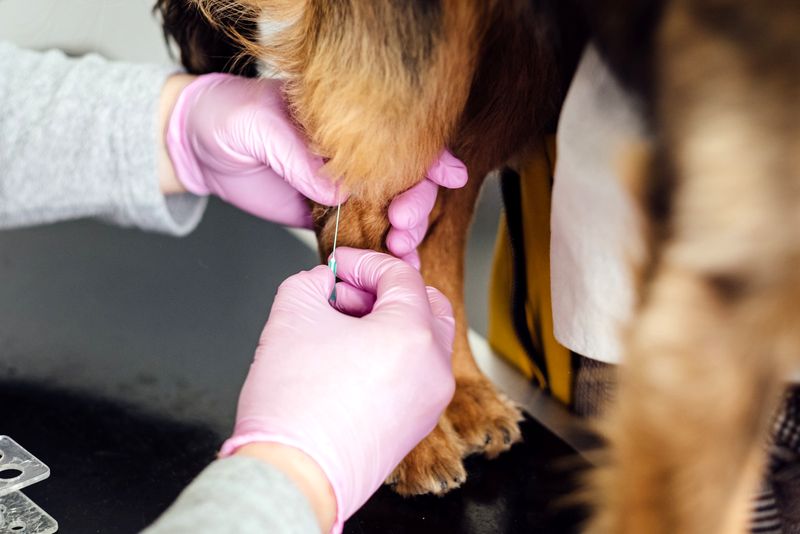Can humans get sick from dogs?

A surprising fact that might catch many pet owners off guard is the potential for zoonotic diseases to be transmitted from dogs to humans. According to the Centers for Disease Control and Prevention (CDC), over 60% of infectious diseases in humans are either directly or indirectly derived from animals, including our beloved canine companions.
Introduction
Dogs are often considered man's best friend due to their loyalty and affectionate nature. However, it is crucial for pet owners to be aware that dogs can carry a variety of diseases and parasites that have the potential to infect humans. This article explores the types of illnesses that can be transmitted from dogs to humans, how these infections occur, and preventive measures to minimize the risk.
Common Diseases Transmitted From Dogs To Humans
Dogs can transmit a range of diseases to humans through direct or indirect contact. The most common types include bacterial infections, viral infections, parasitic infections, and vector-borne illnesses.
Bacterial Infections
- Leptospirosis: This is a bacterial infection spread via the urine of infected animals, including dogs. Symptoms in humans can include fever, chills, muscle aches, and headaches. Untreated cases may lead to severe complications like kidney or liver damage.
- Brucellosis: Caused by bacteria found in contaminated animal products such as milk or tissue from infected dogs. It manifests with symptoms like fever, muscle pain, and fatigue.
- Campylobacteriosis: Another bacterial infection that spreads through contact with dog feces or other contaminated materials. Common symptoms include diarrhea, abdominal cramps, and fever.
Viral Infections
- Rabies: A serious viral disease transmitted via the bite of an infected animal, such as a dog. Immediate medical intervention is critical to prevent fatality.
- Canine Distemper: This virus affects dogs but can also cause mild symptoms in humans like fever and coughing if exposed through saliva or urine from an infected dog.
Parasitic Infections
- Hookworms, Roundworms, Tapeworms: These parasites can be transmitted to humans via contact with contaminated soil or feces. Symptoms in humans include abdominal pain, nausea, and diarrhea.
Vector-Borne Illnesses
Dogs can also serve as hosts for fleas and ticks that carry diseases such as Lyme disease, Rocky Mountain spotted fever, and ehrlichiosis. These illnesses are transmitted to humans through the bites of infected vectors.
| Illness | Transmission Mode | Symptoms in Humans |
|---|---|---|
| Leptospirosis | Contact with urine of infected animals | Fever, chills, muscle aches, headaches |
| Rabies | Bite from an infected animal | Severe neurological symptoms |
| Lyme Disease | Tick bite | Fatigue, fever, joint pain |
Risk Factors And Prevention Strategies
Several factors increase the risk of contracting a zoonotic disease from dogs:
- Poor Hygiene Practices: Not washing hands after handling pets or cleaning up their waste.
- Contact With Ill Animals: Exposure to sick animals increases the likelihood of infection.
- Lack Of Vaccinations: Unvaccinated dogs are more likely to carry and transmit diseases.
To reduce these risks, pet owners should:
- Maintain good hygiene practices by washing hands thoroughly after handling pets or cleaning up their waste.
- Avoid contact with sick animals until they have been treated and cleared by a veterinarian.
- Ensure dogs are vaccinated against common diseases such as rabies, leptospirosis, and canine distemper.
Diagnosis And Treatment
If you suspect that you may have contracted an illness from your dog, it is essential to seek medical attention promptly. Diagnosis typically involves a physical examination, blood tests, and sometimes urine or stool samples for analysis. Once diagnosed, treatment will depend on the specific disease.
Key Takeaways
- Dogs can transmit various diseases to humans through direct contact, contaminated environments, or vectors like fleas and ticks.
- Maintaining good hygiene practices is crucial in preventing zoonotic infections.
- Vaccinating dogs against common illnesses helps protect both the pets and their human companions.
Conclusion
The potential for humans to get sick from dogs underscores the importance of understanding and managing zoonotic risks. By practicing good hygiene, avoiding contact with ill animals, and ensuring regular vaccinations for your pet, you can significantly reduce the chances of contracting a disease from your canine companion.
